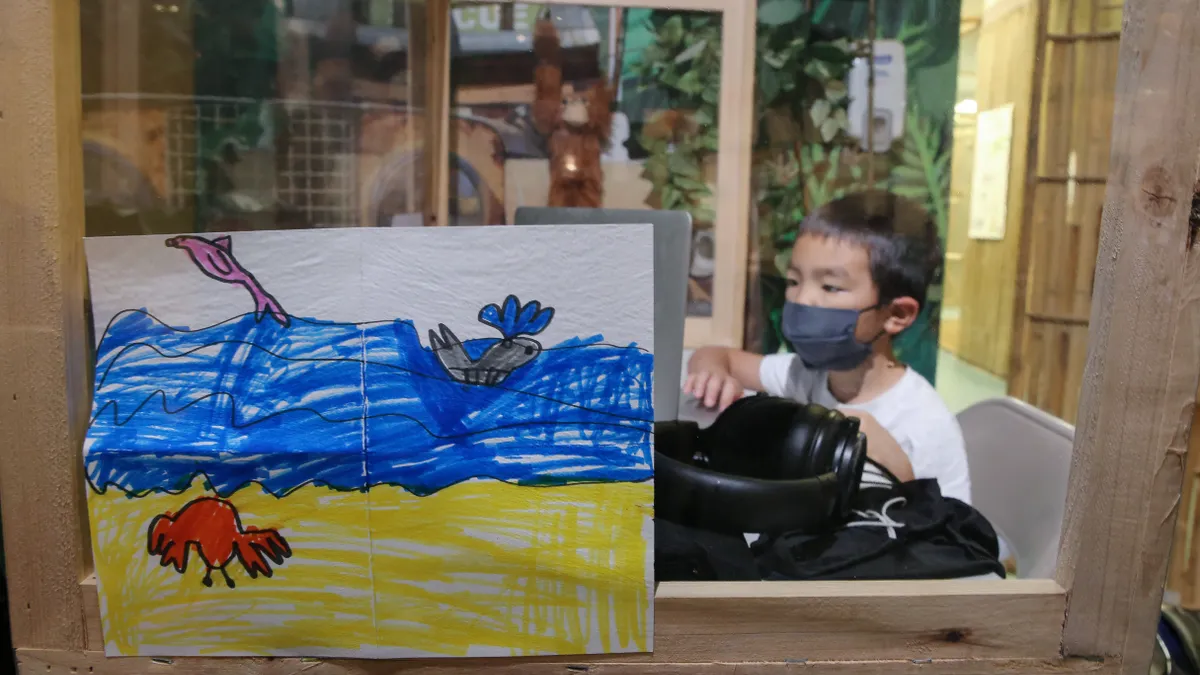Parents of color whose children participated in pandemic learning pods managed by leaders of color were largely satisfied and said their children had positive experiences in these nontraditional educational settings, according to research released Wednesday by the Center on Reinventing Public Education.
CRPE gleaned lessons from seven in-person or virtual pandemic pod initiatives managed by community leaders of color to learn more about participants' experiences. One finding was that leaders of color intentionally sought to address shortcomings in traditional schools by hiring staff of color, avoiding punitive discipline practices, adopting culturally relevant pedagogy, and supporting student and family well-being.
The pandemic pod experiences of community-based organizations and leaders of color can offer lessons for school districts and charter schools as they seek to eliminate racial inequalities in traditional learning settings, the CRPE report said.
Pandemic pods emerged in 2020 as school closures due to COVID-19 left some students struggling with online learning and some families scrambling for childcare. A CRPE database from February 2021 recorded 330 entries of learning pods organized by institutions according to publicly available information. Most of the learning pod operators were non-school organizations.
An earlier report from CRPE found the average weekly cost of learning pods during the 2020-21 school year was $306 per family. The report surveyed 152 families and 101 instructors in 33 states who participated in learning pods at that time, with 37% of parents reporting their children had a much better experience in learning pods compared to their pre-pandemic schooling. Eight percent said they had a "much worse" experience.
For the latest report, CRPE looked specifically at pods created by community-based organizations and leaders of color in various regions across the U.S.
"I think that the pandemic was an opportunity for people of color, community leaders and advocates to implement reforms that they've been calling for for years," said Eupha Jeanne Daramola, author of the CRPE report and researcher at the University of Southern California.
Daramola found several program design commonalities across the seven pod initiatives, including:
- A concerted effort to hire teachers and facilitators of color. Leaders said hiring staff whose racial backgrounds were similar to their students' was a strength of their programs. "That’s one thing I think I want to make clear, is that Black educators and educators that are looking for equity are really the ones who are shaping the next generation, especially through this pandemic," said one director of a pod in Philadelphia, according to the report.
- Affirmation of students' racial identities through the curriculum. Several of the pods CRPE studied purposefully assigned racially and linguistically affirming classwork, discussed Black history, and set time aside for discussion of current events, including the murder of George Floyd in 2020.
Oakland REACH, a community-based parent advocacy organization in California, for instance, offered enrichment classes like creative writing and Chicano cultural studies, according to the report. - Mindful discipline practices. Leaders of several pods said rather than suspend students, they took nonpunitive approaches to discipline, such as discussing discipline issues with parents and creating and monitoring behavior plans for students.
New mindful approaches to discipline required a perspective shift for teachers and parents, leaders said. The report noted the small number of students enrolled in these programs may have supported the ability to use mindful discipline practices with fidelity. But, the report said, leaders had also committed to implementing mindful discipline practices even when there were simpler or quicker approaches. - Focus on the social and emotional health of families. Some of the programs offered students time and space to socialize or gather for school-assigned virtual work at no charge to families. Several pod programs added social and emotional support to their traditional curriculums by conducting community circles and frequent one-on-one check-ins.
Oakland REACH provided each enrolled family a liaison — Black and Latino parents and grandparents who supported pod parents with aspects of their virtual school journeys.
As most students returned to in-person instruction, learning pod enrollment was declining in some of the programs CRPE studied. Some programs have switched focus to summer enrichment activities, tutoring or merging some of their strategies with other educational programs.
Although leaders and parents who participated in the pod programs that CRPE studied largely said there are many benefits, such as the emphasis on racially-affirming practices, they said some programs had capacity limitations to serve diverse learners. Others voiced concerns about sustainable funding.
Parents of color said, overall, their experiences with pandemic pods will help them be better advocates of quality and equitable school experiences.
"I think many parents of color specifically do not feel well served by traditional public schools or by charter schools, and I also think that parents of color and communities of color have answers and strategies that can help traditional school systems address these issues," said Daramola. "But these school systems have to be willing to listen and see parents and people of color, community members as leaders in their own right."












